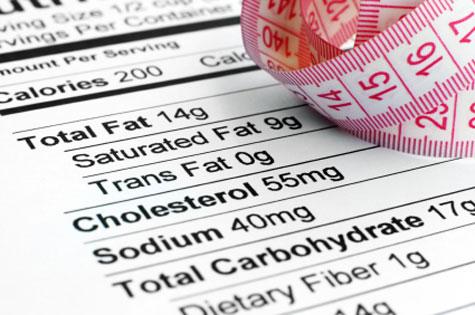Food Standards Australia New Zealand (FSANZ) on Friday called for feedback on the latest version of a draft nutrition and health claims standard which would restrict what can appear on labels.
In particular, the regulator is considering whether consumers can be misled by manufacturers' claims regarding a product's fat-free or percentage fat-free status.
"Concern has been expressed that fat-free claims, particularly on foods high in sugar and energy that do not normally contain fat (for example confectionery) may be inconsistent with public health messages," FSANZ's discussion paper released on Friday states.
Currently the long-awaited proposed labelling standard does not specifically address fat-free claims.
Rather, the deceptive and misleading conduct provisions of Australia's consumer-protection laws are relied on.
When it comes to low-fat claims, the standard requires foods to meet only the conditions for a nutrition content claim about low fat.
Confectionary, breakfast cereals, snack foods and many dairy products often contain claims regarding zero- or low-fat status on their labels.
But that could change under the options being considered by the food regulator.
The discussion papers sets out three possible approaches - tougher regulation, voluntary action through an industry code or maintaining the status quo.
On the regulation front, FSANZ suggests restricting fat-free and low-fat claims to foods that meet the so-called nutrient profiling scoring criterion (NPSC).
"Applying the NPSC to products carrying fat-free and percentage fat-free claims will restrict claims on products based on their overall nutritional profile rather than based on just sugar or energy content," the discussion paper says.
Another possibility would be to require a disclosure statement on foods that have a total sugar content above a specified threshold to alert consumers that "despite the fat-free claim the food is still high in sugar".
Alternatively, high-energy products could be banned - either by category or sugar concentration - from making any low-fat claims at all.
The food regulator notes that when it comes to voluntary action through an industry code of practice "the overall effectiveness is related to the extent of uptake and compliance in relevant industry sectors".
Research suggests consumers are generally interested in the fat content of products.
But, at the same time, it's believed that taste and price "appear to be more important purchase drivers than fat-free claims", the discussion paper states.
Australia's food regulator has been working on the new labelling standard for close to 10 years.
It's release has been delayed on multiple occasions following furious lobbying from industry, heated debate among health professionals and government inaction.















__small.png)










